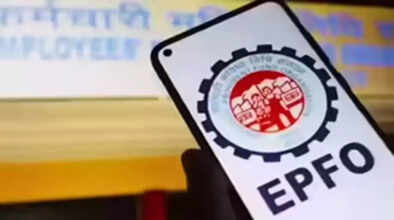EPFO Pension: If PF is deducted, then definitely know, the family will also get support in difficult times..

Most of us who work in private jobs have our PF (Provident Fund) deducted every month. We know that this money is being deposited for our future and that we will receive a pension after retirement. A common rule is that if you have contributed to the EPFO for 10 years, you start receiving a pension at the age of 58. But did you know that the EPFO doesn't offer just one type of pension; it runs seven different pension schemes?
These pensions can provide significant support not only to you but also to your family during difficult times. Very few people are fully aware of these. If you are also contributing to your PF, it is very important for you to know the various types of security that the EPFO provides to you and your family.
1. Retirement Pension
This is the most common pension that most people are aware of. When you turn 58, you are granted this pension by the EPFO. The amount depends on your total contribution to the pension fund. One good thing is that if you wish, you can claim a pension after 58, up to 60 years of age. By doing so, the EPFO increases your pension by 4% every year. This is beneficial for those who wish to continue working for a few years after retirement and receive a higher pension later.
2. Early Pension
Generally, the EPFO starts paying pension at the age of 58, but there are some situations where you can receive pension earlier. If you are eligible for a pension and wish to receive it before the age of 58, i.e., after the age of 50, you can claim it. The EPFO also has a provision for early pension. However, one thing to keep in mind is that if you take an early pension, your pension is reduced by 4% every year.
Example:
If you are supposed to receive a pension of Rs 7,000 at age 58, and you claim at age 57, you will receive Rs 6,720, a 4% reduction. If you take it at age 56, you will receive Rs 6,440, an 8% reduction.
3. Widow or Child Pension
This pension scheme is a major support for the family of an EPFO subscriber. If an EPFO subscriber dies, his wife and two children under the age of 25 are entitled to receive the pension. If there is a third child, he or she will receive the pension when the first child's pension stops at the age of 25. The special feature of this pension is that the 10-year contribution rule does not apply in the event of the subscriber's death. This means that if a subscriber has contributed for just one year and dies, their widow and children will be entitled to receive the pension.
4. Disability Pension
This pension is for EPFO members who become temporarily or permanently disabled due to an accident or illness during service. The age and 10-year pension fund contribution requirements do not apply to this pension. If a subscriber has contributed to the EPS (Employees' Pension Scheme) for even two years and becomes disabled, they are eligible for this pension. This pension helps them become financially independent.
5. Orphan Pension
This is for the tragic situation where the EPFO subscriber dies along with their spouse. In such cases, their two children under the age of 25 are entitled to the orphan pension. This pension is available to children only until the age of 25. This pension provides financial support to children who have lost both their parents during difficult times.
6. Nominee Pension
If an EPFO member dies without a spouse or children, the pension is received by the nominee they have made. This nomination gives you the freedom to have the person of your choice receive financial assistance in your absence.
7. Dependent Parents' Pension
This pension is for single EPFO subscribers who die and have no children or spouse. In such a situation, their dependent father is considered eligible for the pension. If the father dies, the subscriber's mother receives the pension. She continues to receive this pension for life. Form 10D is required to be filled out for this pension. This pension provides significant support to parents who are financially dependent on their children.
Disclaimer: This content has been sourced and edited from Zee Business. While we have made modifications for clarity and presentation, the original content belongs to its respective authors and website. We do not claim ownership of the content.

